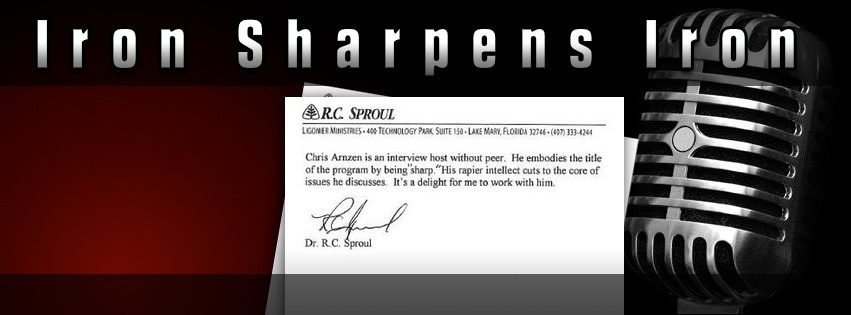




 |
|||||
 |
THE PASTOR'S DAUGHTER: The Way of Salvation Explained to his Daughter by Rev. Edward Payson
Louisa Payson Hopkins![]()
A unique glimpse into the home and heart of the remarkable Payson family of Portland, Maine, as Edward Payson lovingly leads his oldest daughter, Louisa, to genuine faith in Christ. It traces the struggles of a brilliant girl from the age of 4 to 14 as she seeks to come to Christ on her own terms, and not the Lord's. ![]()
Those who have loved "A Pastor's Sketches" by Ichabod Spencer will find themselves in familiar territory as Payson faithfully presses his daughter to repent and believe the Gospel. The chapters are brief and filled with illuminating illustrations that parents and pastors alike will find useful in presenting the claims of Christ and the demands of the Gospel upon sinners. There is nothing like this available anywhere!![]()
It cannot be recommended too highly!![]()
PAYSON TRILOGY INCLUDES:![]()
THE PASTOR'S DAUGHTER BY Louisa Payson Hopkins![]()
STEPPING HEAVENWARD by Elizabeth Payson Prentiss![]()
SERMONS FOR THE CHRISTIAN FAMILY by Edward Payson![]()
PAYSON TRILOGY c50![]()
OVER 40% Discount![]() SGCB Price: $10.75 (list price $18.00)
SGCB Price: $10.75 (list price $18.00)![]()
THE PAYSON TRILOGY - 50% Discount for Trilogy and get "Golden Hours" Free ($12.00 Value)![]() SGCB Price: $32.00 (list price $62.00)
SGCB Price: $32.00 (list price $62.00)
THAT IS A TOTAL OF FOUR BOOKS WORTH $74.00 FOR JUST $32.00![]()
Additional Information
• Biographical Sketch
• Original Advertisement
• Preface
• Chapter 1
| Chapter 1 |
Maria was the daughter of a clergyman, who resided in a pleasant town in America. Of his character I will only say that earth has rarely witnessed a more lovely exemplification of the principles of the Christian religion.
My reasons for supposing that an account of the various states of mind through which Maria passed, preparatory to her becoming a disciple of Christ, may benefit other young persons, are several. The feelings which she expressed in conversation with her father, and the objections which she brought forward, are, doubtless, substantially the same which are felt and urged by all who reflect upon the subject of religion, for any considerable time, before they yield their hearts to its influence. To such, it may be of service to find their objections answered, their excuses shown to be groundless, the artifices of their hearts exposed, and the motives to repentance and submission urged upon them. Those who have never reflected upon the subject may be led to do so, by reading of the interest which she felt, and the result of this interest.
If it should be thought that the observations attributed to Maria indicate more maturity of mind, and greater command of language, than could be expected in a child at her age, it should be remembered that she was the eldest child of the family, and as such received a large share of attention from both her parents: that her father, in particular, devoted much time to her instruction, and that she united to an inquiring and eager mind, a great love of reading, all which circumstances conspired to hasten the development of her powers.
Maria's interest in the subject of religion commenced at a very early age. I do not know, nor does any one, how early. When she was between two and three years old, she would sit on a little stool, at her father's feet, with the tears rolling down her cheeks, while he talked to her of the sinfulness of her heart, and the impossibility of her ever being happy till it was changed. The following incident occurred when she was about a year and a half old. She had been sick for some time, and had been rocked to sleep in the cradle; but was now so far recovered that her mother thought it proper for her to sleep up stairs. Anticipating some objection to this measure on the part of the child, she began to talk to her as she lay in the cradle, about being good, telling her that this was the only way to be happy. Maria suddenly asked, in the quick way in which she commonly spoke, Ma, how can I be good?"
Her mother told her she must have a new heart. "How can I have a good heart? I will take out my naughty heart," said she, untying her frock, "and stamp on it, and beat it --- will that make it good?"
Her father, coming in at this moment, heard the question. "No, my daughter," said he, "you cannot make your heart good."
"You, then, pa. Didn't pa make his new heart? Didn't ma make hers? Didn't Phebe make hers?"
"No, nobody but God can make new hearts; and if you want one you must ask him."
After some more conversation of this sort, her mother carried her up to bed. When she was about leaving her, she said, "Has my little daughter any thing to say to her mother?" hoping Maria would ask her to pray; but instead of this, she clasped her hands, and looking up to heaven with an expression of the greatest seriousness and earnestness, she said, "Please, great Papa in heaven, take away the naughty out of my bosom."
For two or three months after this there was so remarkable a change in Maria's disposition, she was so much more gentle and yielding, that her parents almost began to hope that the infantile prayer had been heard.
Maria was of a very inquisitive temper, and this disposition was never checked by a refusal on the part of her parents to answer her inquiries, though she uttered them with a rapidity and eagerness which hardly allowed time for reply. One Sabbath, her father, feeling unable to preach from illness, her mother was lamenting the necessity he was under of going into the pulpit, when Maria said quickly, "Why doesn't uncle preach?"
"Because he is not a minister," said her mother; "nobody can preach but ministers."
"What is a minister? How came there to be any ministers?"
Her father explained to her, that other ministers ordained them, or set them apart, by laying on of hands and prayer.
"They couldn't make the first minister so, I know. Who made the first one?"
Her father then related to her the account of the sending forth of the apostles, and the conversion and ministry of Saul of Tarsus.
"What, that wicked Saul, that wanted to kill David? I thought he was a wicked man when he died."
"No, not that Saul, but another."
"Well, why didn't God make that Saul a good man? Why don't he make every body good?"
When Maria was nearly three years old, she refused to say, 'Please, mother,' on one occasion when she had been directed to do so. Her mother reasoned with her for some time, but finding it ineffectual, she directed Maria to go into the closet. There she remained for half an hour, without giving any signs of a willingness to obey. Her mother said to the domestic, loud enough for Maria to hear, "You may cover up the fire, Nancy, it is time to go to bed." The little girl thought she was to spend the night in the closet. "O dear!" she said, in a piteous tone, "I wish I could say, 'Please, mother.'"
Just then her father came in, and heard how matters stood. He took Maria from the closet, put on her cloak and bonnet, opened the street door, and led her out on the steps. "There," said he, "Maria may go away; we don't want any little girls here who won't mind their mothers." The child stood for a moment confounded; then burst into tears, and sobbed out, "Please, mother."
A few months afterward, she received a lesson which might have cured her of believing herself wiser than any body else. Her mother was picking some peaches, and had just taken them from the salt and water with which they had become thoroughly impregnated, when Maria came into the kitchen, and asked for one. She had eaten ripe peaches, in their natural state, and supposed these to be of the same kind. In vain was she assured that they were not good to eat, that they were both bitter and salt; in short, worse than any medicine she had ever tasted: Maria knew they were good, and knew she would like them. Finally, her mother told her she might have one on the condition that she should eat the whole, which she gladly promised to do. But no sooner had she taken a mouthful, than it was rejected with the greatest disgust. "I never tasted any thing so ugly in my life; mayn't I have something to take the taste out of my mouth?"
"No, my dear, you must eat it all; you know that was the condition on which I gave it to you."
Maria began to cry. "O, mamma, you won't make me eat that nasty thing?"
"Yes, Maria, you must abide by your own choice: you see now that you had better believed me."
Maria was sure she never could get it down, sure it would make her sick, it would kill her; but her mother was firm. At length, with the help of a piece of bread which her mother allowed her, and with tears and sighs, the nauseous morsel was fairly swallowed; but Maria did not soon forget the lesson it had taught her.
Another time she came sobbing to her father, and told him she was afraid heaven was not so happy a place as it was supposed to be.
"Why, my dear, what makes you think so?"
"Because, papa, if it is, what made the angels sin? They were happy, and they knew they were happy, didn't they, papa? Then why should they sin?"
As she grew up, she proposed, at different times, all the objections which have been urged by cavillers and objectors against religion; thus proving, as her father observed, that they had their origin in the heart, not in the head.
Maria had been taught to repeat Miss Taylor's Hymn, beginning, "Pride, ugly pride," and its meaning had been explained to her. One morning, before she was up, her father was disturbed by strange sounds, which seemed to proceed from the adjoining room, where Maria and her little brother slept. On going to ascertain the cause, he found her, and the little boy, at her instigation, with two sticks, employed in beating the pillows with great vehemence and indignation. He inquired what offense they had committed; and was gravely informed by Maria that they were "making believe" the pillows were pride, and so they meant to give them a good beating. Maria seemed to feel that she had achieved quite a conquest in this way; but her parents inclined to the opinion that the chastisement inflicted on the pillows had tended more to their detriment, than to the increase of humility in the children.
It has been already mentioned, that before Maria was three years old, she was very unwilling to be convinced that she did not love God, and often wept because her father seemed to doubt this affection. She observed one day, that "she wished she could die, and then her father would see her fly right up to heaven like a little angel, and he would know she loved God." However, this wore off; and for a year previous to the commencement of our history, she manifested no particular interest in the subject of religion, and had quite forgotten her former conversations relating to it. It will be seen that at this period, her impressions were revived.
Our aim will not be to give a connected history of the progress of her mind, but merely to present conversations and incidents which occurred at intervals, after she had attained to the age of four.
